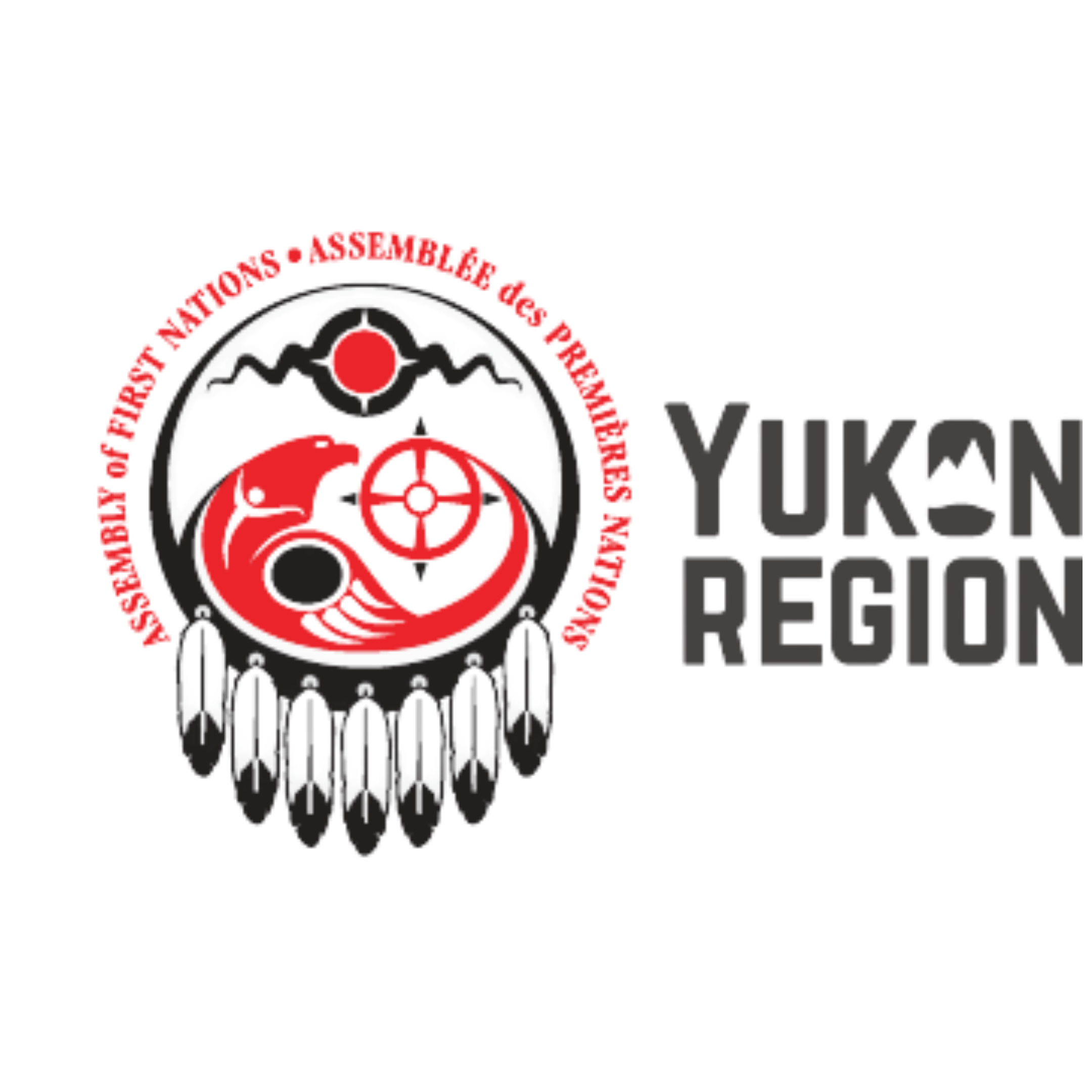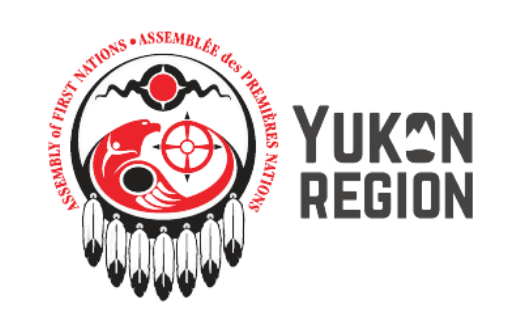
Womxn’s History Month
We are thrilled to celebrate Womxn’s History Month 2023, a special time dedicated to spotlighting womxn making significant strides towards positive change in the Yukon and beyond. These trailblazers continue to rewrite #HERstory with their leadership, tenacity, and relentless spirit.
Every Wednesday for our #WomxnWednesday feature, where we highlight an incredible #YukonFirstNations womxn. Their leadership, contributions, and unwavering commitment continue to shape the Yukon, creating a brighter future not only for the people of today but also for the children of tomorrow.
Stay tuned for inspiring stories of perseverance, resilience, and empowerment that embody the spirit of our community. Together, let’s celebrate the womxn who make our world a better place, one action at a time.
Marilyn Jensen
Marilyn is an active Indigenous
artist and advocate of Indigenous people speaking and teaching on many
important matters relevant to her community. Her passion lies within
reclamation and revitalization of ceremony, songs, culture and everything
foundational to her identity. Yadultin, Dūsts’ādle, and Shaawát goox is Inland
Tlingit and Tagish Khwáan from the Carcross/Tagish First Nation; belonging to
the Dakhl’aweidí Clan under the Tagish Keét Hít (Killerwhale House) in Southern
Yukon Territory. Through her Father’s lineage, her ancestry is also British and
Scottish, which she equally honours. She
has taught First Nation Governance at Yukon University and works closely with
many Indigenous communities as a consultant focusing on wellness, governance
and cultural strengthening. Her main methodology in speaking, teaching and
facilitating has always been through storytelling and sharing the beauty of her
culture and identity.
Marilyn has taught important and
engaging training for the Yukon Government on Indigenous history, land claims, self-government,
and self-determination for over 20 years and for numerous First Nation
Governments and organizations in countless communities. She has worked for her Nation as a Senior
Government Official in governance and with the Self-Government Secretariat of
the Council for Yukon First Nations. More
recently, she has developed a new company called Lateral Kindness Inc.
(officially being launched soon) in partnership with her colleague, friend and
adopted bother, Thomas Shepherd. Their workshops deliver awareness and
understanding around Indigenous lateral violence, offering tools, and calls to
reclaim kindness instead as a form of resistance. Marilyn has travelled all
over the North and elsewhere to share her knowledge and bring awareness to
Indigenous narratives.
She celebrates and honours her culture
by engaging in traditional dancing, singing, drumming, choreographing and
storytelling with an Inland Tlingit dance group she founded and leads; the
Dakhká Khwáan Dancers. They have danced and promoted their culture
internationally in New Zealand, Taiwan, Japan, across Canada, and the U.S. They have been honoured as the recipients of
the National Indigenous Tourism Award and nominated for an Indigenous Music
Award. In 2016 Marilyn was honoured by the Governor General of Canada as a
recipient of the Polar Medal for Cultural Reclamation in the North. She has
earned a B.A. in Anthropology from the University of Alaska and an M.A. in
Indigenous Governance from the University of Victoria. Marilyn speaks professionally as a Keynote
with the Speakers Bureau of Canada, often sharing her knowledge on topics such
as Reconciliation and wellness with large corporations and Indigenous
communities. She currently serves as the
Chair of the Indigenous Tourism Association of Canada and as President of the Yukon
First Nation Culture and Tourism Association.
Marilyn began her career at Council for Yukon First Nations
working as a researcher with the Elder’s Documentation Project, in which she
was tremendously honoured to record, document and spend time with elders all
over the Yukon in the 90s. From there,
she and Ingrid Johnson began their company, Legendseekers Research Inc,
focusing on Indigenous training in the Yukon.
In 1997, they pioneered the Yukon Government’s massive training
initiative to educate all of their employees on Yukon First Nation history,
culture, land claims and self-government.
It would run for over 20 years and occasionally they still provide this
training.
In 2013, Kwanlin Dun FN requested that Marilyn develop and
facilitate training for their leadership, staff and citizens on Indigenous
Lateral Violence and how it could be transformed into something healthier for
the community. That was when Lateral
Kindness was born, along with the partnership of her friend and colleague who
has since started the company Lateral Kindness Inc., Marilyn being the CEO and
51% owner. It is the most meaningful
work taking them all across Canada to numerous Indigenous communities
requesting their workshops and training.
Marilyn speaks professionally as a keynote speaker with the Speaker’s
Bureau of Canada on numerous topics related to Indigenous people and their
journey towards self-determination and healing.
Atlein Gunalcheésh for including me and my work in Womxn’s
History Month! I am the result of so many incredibly strong and resilient
Indigenous woman before me…I hope I am holding up their vision and continuing
their path in the healing and strengthening of our communities!
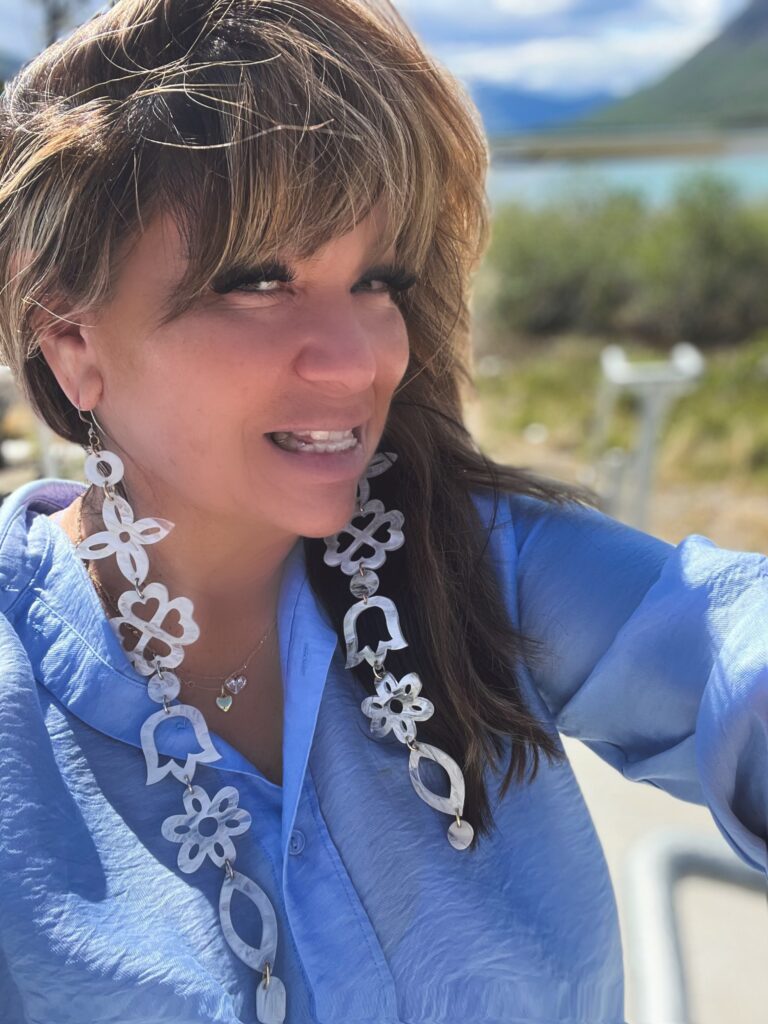
Carissa Waugh
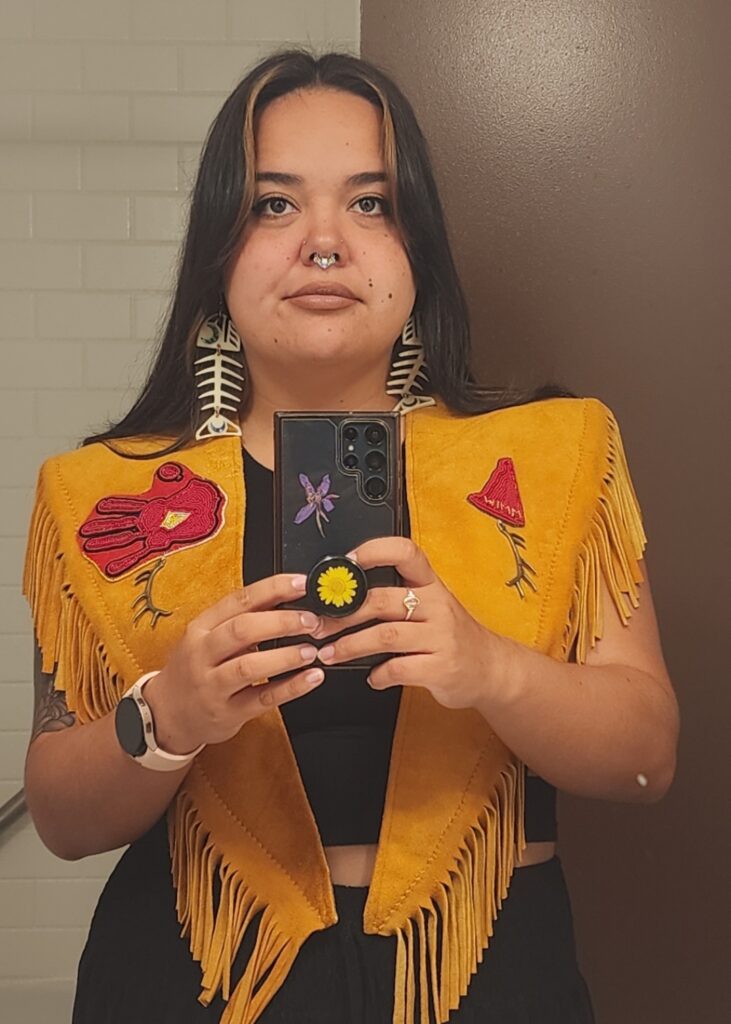
Carissa Waugh, known by her Northern Tutchone name Ékè Éwe, is a Kwanlin Dün First Nation citizen and beneficiary, born and raised in Whitehorse, Yukon. She sits on the National Women’s Council for the Assembly of First Nations representing the Yukon Region, the Project Coordinator/Youth Outreach for the Northern Council for Global Cooperation (NCGC) and UNLEASH. She’s an alumni of the Yukon First Nations Climate Action Fellowship and an artist!
Growing up in the Yukon, Carissa always had strong women role models. Carissa learned so much from her mom, grandma, aunts, teachers, leaders, elders, and many more! Recently, she was told, “The more you hear that story, the more it’s your responsibility to pass it on,” she carries that with her, applying it to teachings as well (all of our traditional stories are lessons). We are all teachers, but we must also be open to learning every day.
Carissa has the incredible opportunity to go to Kigali, Rwanda, with some amazing women this December to attend the UNLEASH Innovation Lab. They are attending to prepare themselves for the lab, which they are planning to host in Whitehorse, Yukon, in November 2024 (the first one ever to be hosted in North America.)
UNLEASH Rwanda is an Innovation Lab for the Sustainable Development Goals where hundreds of young changemakers worldwide will get together in Kigali during the first week of December to co-create solutions for the most pressing challenges our planet faces.
Carissa is incredibly honoured to be featured in AFN Yukon Region’s Womxn’s History Month, especially after following the amazing Lorraine Netro. Everything she does isn’t for herself. It’s for her family, ancestors, future seven generations, community, women and children, and those who don’t have a voice. Carissa wants to be who she needed growing up, who her mom needed when she was growing up. She wants to be that person for anyone who needs her.
Carissa is turning 30 this weekend and has a lot to reflect on. She is eternally grateful for all the opportunities, experiences, life lessons, friendships, connections, and more. Carissa has worked hard to get where she is, but she can’t forget all those women who taught her what she needed at that point in her life. She carries you wherever she goes.
Lorraine Netro
Drin Gwinzii, Shoozri’ Lorraine Netro valzhii, and Vuntut Gwitchin gwatsut iillii, I was born and raised in Old Crow, the northernmost community in the Yukon.
Raised on the Land on the Vuntut Gwitchin traditional territory with my mother and sisters, my upbringing was steeped in the richness of our traditional practices. Surrounded by my mother and grandmothers, they instilled in us the traditional teachings of the Vuntut Gwitchin. Their unwavering dedication to upholding and preserving our traditions laid the foundations for our roles as stewards of our Lands and our way of life. Their teachings emphasized respect and understanding of our responsibility to protect and sustain for all of our future generations. This upbringing, firmly rooted in the teachings of our traditional practices, continues to drive my commitment to advocating for our sacred lands and our way of life.
Reflecting on my professional journey, I worked at the Royal Bank of Canada in 1992, working for seven years. After leaving the bank, I became an Executive Assistant for the Vuntut Gwitchin Chief and Council from 1999 to 2000. I was elected as a Member of the Legislative Assembly for Vuntut Gwitchin in 2000, a position I held until 2006. After my term ended in 2006, I had a brief stint as Deputy Chief for my Nation. This role further reinforced my commitment to serving my community and enhancing the well-being of my people. In my ongoing pursuit of growth and learning, I started my own company – Destiny Management Consulting – a venture I continue managing.
I have participated on various boards and committees, including the Yukon Aboriginal Women’s Council, where I served from 2008 to 2018. I was the Co-Chair of the Assembly of First Nations (AFN) Women’s Council from 2013 to 2016. Furthermore, I was a member of the Alaska Wilderness League Board, which works directly with the Alaska Wilderness League, from 2015 to 2020. Each role has enriched my perspective and fueled my determination to continue advocating for our people, rights, and traditions.
Currently, I represent the Yukon Region on the AFN Knowledge Keepers Council. I am a committee member on the AFN Environment Sector’s Advisory Committee on Climate Action and the Environment (ACE) and the Joint Committee on Climate Change (JCCA). My role on these committees is to ensure that the impacts of climate change on First Nation communities are adequately addressed in environmental policy and contribute to conversations on climate resilience and sustainability. I also sit on the Gwich’in Steering Committee and serve on the Commanding Officer of the Yukon First Nation Advisory Committee.
The Arctic National Wildlife Refuge, Iishik Gwatsut Gwandaii Goodlit, is the sacred place where life begins and a sacred place for all Gwich’in Nations. From 1999 to the present, working with other Gwich’in, we have focused on advocating to protect the Arctic National Wildlife Refuge for future generations. In 1988, the Elders of our Gwich’in Nation gathered and directed the young people to educate the world about how important this sacred place is for us. Taking this direction from our Elders, many of our leaders and community members of our Nation have shouldered the responsibility of educating our ongoing struggle to uphold the Gwich’in way of life. Over the years, our journey has had many wins and losses, yet we remain steadfast in protecting the Arctic National Wildlife Refuge. Our work is far from over, and we remain strong and unified, knowing we will never give up.
The year 2021 marked a significant and emotional turning point with the discovery of the 215 children recovered at the Kamloops Indian Residential School. In response to this devastating revelation, James Henyu and Jacqueline Shorty initiated the Warriors Walk for Healing Nations. As a passionate advocate for Indigenous rights and cultural preservation, I joined approximately 17 other dedicated walkers in this monumental six-week, 2100-kilometre journey from Whitehorse, Yukon, to Kamloops, BC. We were honouring the memory of these innocent children and all Survivors of residential schools and to make a resounding statement; we, as First Nations people, are still here in the Yukon and across Canada. It is important to me to continue the dialogue surrounding residential schools and expose the intergenerational trauma caused to First Nation families.
In September 2023, I joined the Walking Warriors For the Lost Children. We walked from Dawson City to Whitehorse, Yukon, where we journeyed along the North Klondike Highway ending at the Kwanlin Dün Cultural Centre to continue honouring the Lost Children and Survivors of residential schools for the National Day for Truth and Reconciliation.
I am grateful to be featured in the Womxn’s History Month. This recognition is not just a testament to my journey, but it is a tribute to the many resilient, powerful, and trailblazing Womxn of the Vuntut Gwitchin community and the Yukon First Nations communities and First Nation communities across the country. I feel honoured to stand among these Womxn. May we continue to uplift, inspire, and empower each other, fostering a future where our young Womxn can fully embrace and celebrate their identity, culture, and potential and always have our voices at the forefront.
Mahsi cho, what an honour this is! I appreciate this!
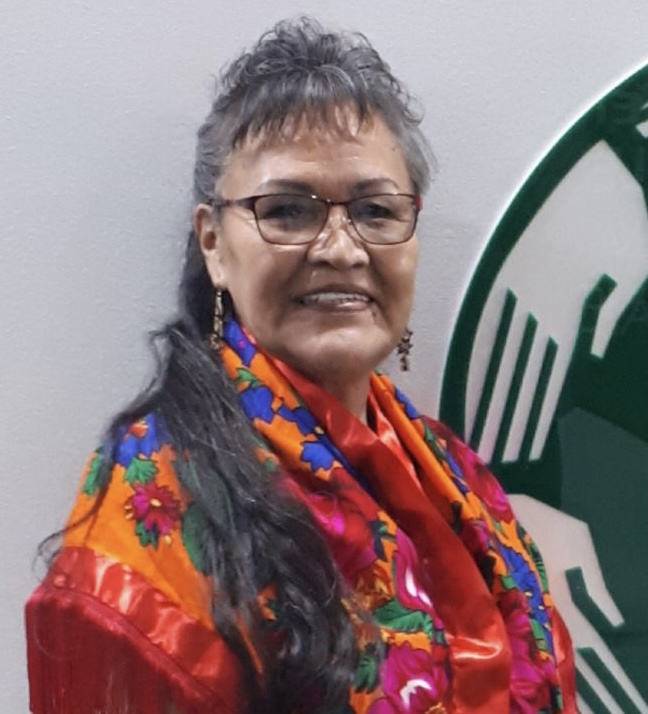
Debbie Nagano
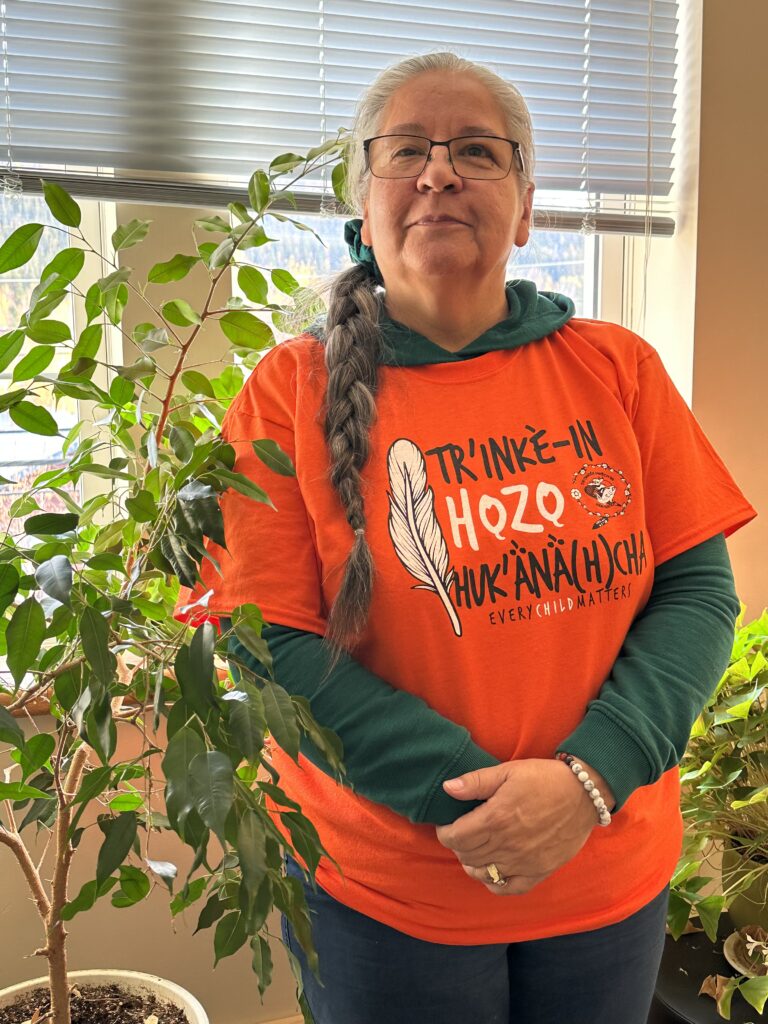
Trigger Warning: This post contains details about residential schools which some may find triggering or cause distress.
My name is Debbie Nagano. I am honoured to participate in Womxn’s History Month and mäshi that I will lead this series.
I am Tr’ondëk Hwëchin, of the Wolf Clan, I am a wife, mother, daughter, sister, and grandmother. I live on the Tr’ondëk Hwëchin Traditional Territory, which has always been my home. My position with the Tr’ondëk Hwëchin Government is the Director of Heritage, and I am the co-chair of the UNESCO World Heritage Group for Tr’ondëk -Klondike, which was recently inscribed on the world heritage list. I am also part of the Working Group for the Yukon Residential School Missing Children Project.
It is important for me to acknowledge that I am never walking alone. I honour my parents, Steve and Peggy Kormendy, and I am grateful for my community and the Elders who support our work.
Much of my work is affected by the ongoing impacts of colonialism on the lives of Indigenous Peoples, not just in my community and Nation but across the country. This means in my work, my focus is on truth. To be clear, truth comes in many forms, and one of them is the need to address hard truths.
Recently, we had two significant times of truth in our community.
The first was with the Tr’ondëk-Klondike, UNESCO World Heritage Inscription, which was a long two decades in the conjuring, and through this process, our Nation was placed on a global stage.
It was never about a plaque, a token or even tourism. It was the global recognition that First Nations’ stories have a universal impact and need to be heard, these are the stories and the history of the impacts of colonization. This is also about our Truth, the truth of the Tr’ondëk Hwëchin people and First Nations people across Turtle Island.
We cannot speak about our truth without speaking about colonialism, how that word hurts my heart, and the recent findings at the former Chooutla Residential School grounds. These have been difficult days for us as we receive confirmation of the stories that our little ones were taken by this colonialist system of deliberate oppression and destruction. A genocidal system that was planned, intentional, designed, and constructed to attempt to “take the Indian out of the child.” This is, and was, an act of genocide. To call it anything else is to ignore the truth.
Through the strength and resilience of the Elders and the Survivors, we have always known what happened at these places. For you see, unlike much of the world, we have always believed in our people. We honoured those who told us their stories, and we have been unwavering in our commitment to bring both awareness to the residential school system brutality and to ensure that the experiences of Survivors are heard and respected. We know this to be a genocide.
We cannot forget that these systems of intentional violence are still with us today, they are just in a different form. When I think of what my future holds and the work I will continue doing, I think of the quote from renowned poet Audre Lorde; “For the master’s tools will never dismantle the master’s house.” We need new tools, approaches, and our continuing commitment to change. It is important for our people, in particular our young people, to remember that we are strong, we are capable and resilient, and it is our future generations that will lead us.
This is a little bit of my work, my story and my life.
Mäshi. It is my honour to be included in Womxn’s History Month.
